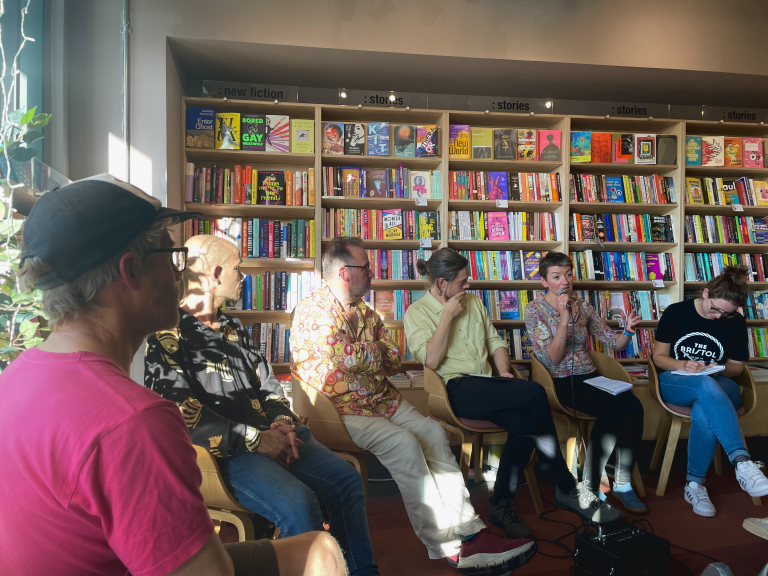
Sociocracy: knight in shining armour against women’s poverty? – Bookhaus talk recap
-Genevieve Bland
In a world where capitalism and neoliberal economies are assumed to be the only way forward, a panel organised by STIR, a magazine reporting on new economies aimed to challenge this narrative. They raised other viable economic systems, one’s in which communities, ecology and social justice are at the centre.
Gathered in the slick Bookhaus shop near Bristol’s harbourside, Eliz Mizon, the Bristol Cable’s communications lead, Ben Moss, the co-founder of the Wood project, Prof Martin Parker, business school professor at the University of Bristol, Max Jefferey, the art editor of STIR magazine and John who works for Bristol Copwatch constituted the panel.
So, what do all these individuals have in common? They are all part of and/or support grassroot social enterprises, co-operative based businesses, and community led organisations.
In between discussions on hidden curriculums (what is not taught at school), the paradigm behind business models of non-profit enterprises, and the emergence of well-being economies, one could not help but wonder if sociocracy was a tool which could help women in precarious financial situations.
Sociocracy can be defined as an enterprise which is based on the equality of each individual voice and collective ability for every member to be part of the decision making.
This governing system is explored in community ownerships such as co-ops where every member owns a share of the business, and everyone has a say. This breaks the unsustainable and inequitable systems in which women are disproportionality affected, as the hierarchal nature of company models historically favour men at the top.
The gendered nature of this economic inequality is even more flagrant with the current cost-of-living crisis. For example, women represent 90% of single-parent households and often manage household budgets and food with their sole income.
Could sociocracy be the model used by businesses to help women collectively thrive?

